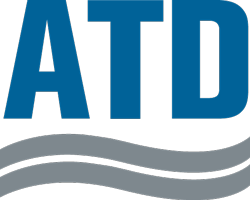ATD Supports Congressional Efforts to Withdraw EPA Phase 3 Rule on Heavy-Duty Vehicles
WASHINGTON (July 2, 2024)—The American Truck Dealers (ATD) today announced its support for Congressional efforts to urge the Environmental Protection Agency (EPA) to withdraw its “Greenhouse Gas Emissions Standards for Heavy-Duty Vehicles – Phase 3” rule targeting fleet-wide greenhouse gas (GHG) reductions for model year (MY) 2027-2032 heavy-duty vehicles.
On Tuesday, 157 Members of Congress released a letter to the EPA urging the agency to withdraw its rule. EPA’s rule would force the broad adoption of heavy-duty zero emission vehicles (ZEVs), despite these vehicles currently being 0.3% of sales last year. Additionally, ZEVs such as electric trucks have upfront costs up to two to three times more expensive than comparable diesel vehicles and do not offer comparative performance and range capability.
“Not only would this rule harm consumers, but it would also exacerbate consolidation by effectively forcing our small trucking companies out of business that cannot afford this hasty transition to electric or hydrogen powered trucks,” wrote the Members of Congress, led by Rep. Randy Feenstra (R-Iowa). “It is abundantly clear that the average American will be strapped with higher grocery prices and utility costs from this regulation.”
“Apart from the greater cost of ZEV trucks, the U.S. lacks a national commercial vehicle charging network which makes customer adoption of heavy-duty ZEVs and their day-to-day use impractical,” said ATD Chairman Scott Pearson. “EPA rushed this rule and did not consider its impact on jobs at all.”
A study released by the Clean Freight Coalition found that full electrification of the U.S. commercial truck fleet would require nearly $1 trillion in infrastructure investment and grid network upgrades to meet demand. While dealers are investing millions of dollars of their own capital in the infrastructure, training, and equipment to sell and service ZEVs, truck buyers are unlikely to buy these vehicles without a reliable public refueling infrastructure designed for commercial ZEVs.
Media Contacts

